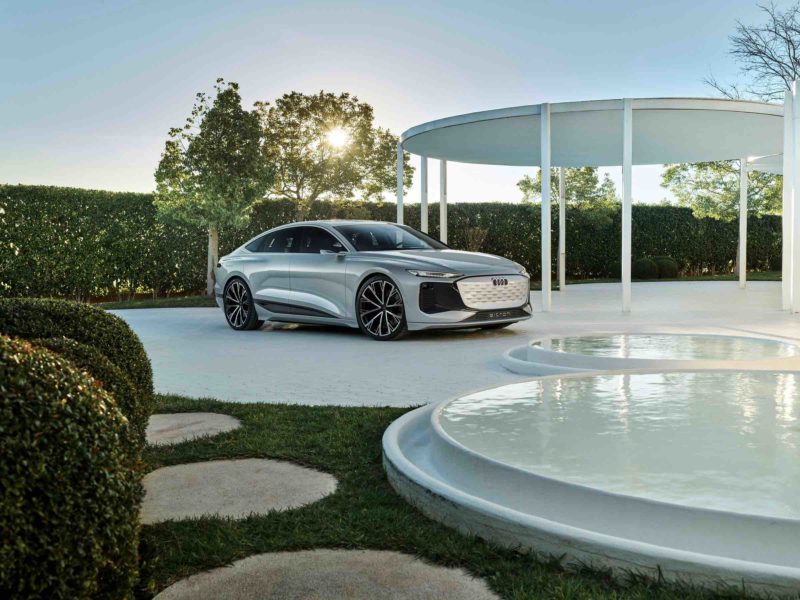German luxury vehicle manufacturer Audi has unveiled its four-door Audi A6 e-tron concept at the Shanghai Motor Show, the first of a family of fully electric production cars which Audi hopes will begin to see the light of day in late-2022.
Audi released a full hybrid version A6 back in 2011 and the current Audi A6 TFSIe plug-in hybrid which made its debut in 2019, and is now ready to take it to a full electric version.
Based on the company’s Premium Platform Electric (PPE), Audi expects that future A6 e-tron models will boast an all-electric range of over 700-kilometres, depending on the selected drive system and model version, and accelerate from 0 to 100 km/h in under four seconds.
Audi’s new A6 e-tron concept follows in the path set by the original Audi e-tron, which debuted in 2018, and which was itself followed by the Audi e-tron SUV and e-tron Sportback, and the e-tron GT which was debuted earlier this year and is based on a new technology platform developed in partnership with Porsche AG.
The German luxury automaker also unveiled last week the Q4 e-tron and the Q4 Sportback e-tron, a compact crossover due to be introduced in the middle of the year. Both Q4s were built on the Volkswagen Group’s MEB platform.
Developed under Audi’s leadership in partnership with Porsche AG, the first Audi production vehicles built on its PPE platform will be slowly unveiled starting in the second half of 2022.
Designed specifically to produce vehicles to be launched globally, Audi’s PPE platform will result in cars being manufactured at its factories in both Europe and China.
The newly unveiled Audi A6 e-tron concept borrows its measurements from the traditional A6, the only thing the two have in common according to the company.
Measuring in at 4.96-meter-long, 1.96-meter-wide, and 1.44-meter-high, the body is designed as a Sportback and will boast 800V charging technology and can be charged with up to 270kW at fast-charging stations.
Audi expects the car will be able to recharge more than 300-kilometres in only 10 minutes, and in less than 25 minutes on a fast-charger you can charge the car’s 100kWh battery from 5% to 80%.

Joshua S. Hill is a Melbourne-based journalist who has been writing about climate change, clean technology, and electric vehicles for over 15 years. He has been reporting on electric vehicles and clean technologies for Renew Economy and The Driven since 2012. His preferred mode of transport is his feet.

